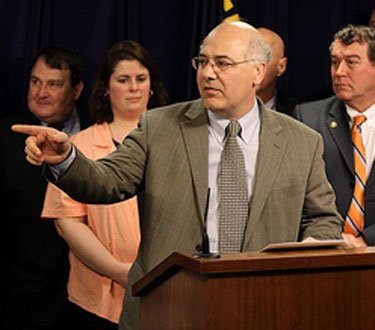
Sir Thomas More
My pseudointellectual liberal classmates have been reacting to the Supreme Court decision in favor of Hobby Lobby, excusing religious employers from providing contraception through employee health insurance, with ridicule, treating the very idea of moral reservations toward contraception as bizarre, insane, and a fringe position.
But the civilization of Europe and the Modern World were actually built by people of traditional religious faith, who until very recently in overwhelming percentage believed on the basis of revealed religion that contraception was wrong. I am not myself a believer, but I differ from most of my Yale classmates in declining to believe that today’s community of fashion has arrived at some uniquely superior and sophisticated position on every issue and that anyone who disagrees is some sort of troglogyte.
Thomas Babbington Macauley was the ultimate Whig historian, but even Macauley found himself obliged to acknowledge that Modernism and Scientism are not actually competent to refute religious faith.
Natural theology, then, is not a progressive science. That knowledge of our origin and of our destiny which we derive from revelation is indeed of very different clearness, and of very different importance. But neither is revealed religion of the nature of a progressive science. All divine truth is, according to the doctrine of the Protestant churches, recorded in certain books. It is equally open to all who, in any age, can read those books; nor can all the discoveries of all the philosophers in the world add a single verse to any of those books. It is plain, therefore, that in divinity there cannot be a progress analogous to that which is constantly taking place in pharmacy, geology, and navigation. A Christian of the fifth century with a Bible is neither better nor worse situated than a Christian of the nineteenth century with a Bible, candor and natural acuteness being, of course, supposed equal. It matters not at all that the compass, printing, gunpowder, steam, gas, vaccination, and a thousand other discoveries and inventions, which were unknown in the fifth century, are familiar to the nineteenth. None of these discoveries and inventions has the smallest bearing on the question whether man is justified by faith alone, or whether the invocation of saints is an orthodox practice. It seems to us, therefore, that we have no security for the future against the prevalence of any theological error that ever has prevailed in time past among Christian men. We are confident that the world will never go back to the solar system of Ptolemy; nor is our confidence in the least shaken by the circumstance that even so great a man as Bacon rejected the theory of Galileo with scorn; for Bacon had not all the means of arriving at a sound conclusion which are within our reach, and which secure people who would not have been worthy to mend his pens from falling into his mistakes. But when we reflect that Sir Thomas More was ready to die for the doctrine of transubstantiation, we cannot but feel some doubt whether the doctrine of transubstantiation may not triumph over all opposition. More was a man of eminent talents. He had all the information on the subject that we have, or that, while the world lasts, any human being will have. The text, “This is my body,†was in his New Testament as it is in ours. The absurdity of the literal interpretation was as great and as obvious in the sixteenth century as it is now. No progress that science has made, or will make, can add to what seems to us the overwhelming force of the argument against the real presence. We are, therefore, unable to understand why what Sir Thomas More believed respecting transubstantiation may not be believed to the end of time by men equal in abilities and honesty to Sir Thomas More. But Sir Thomas More is one of the choice specimens of human wisdom and virtue; and the doctrine of transubstantiation is a kind of proof charge. A faith which stands that test will stand any test.





